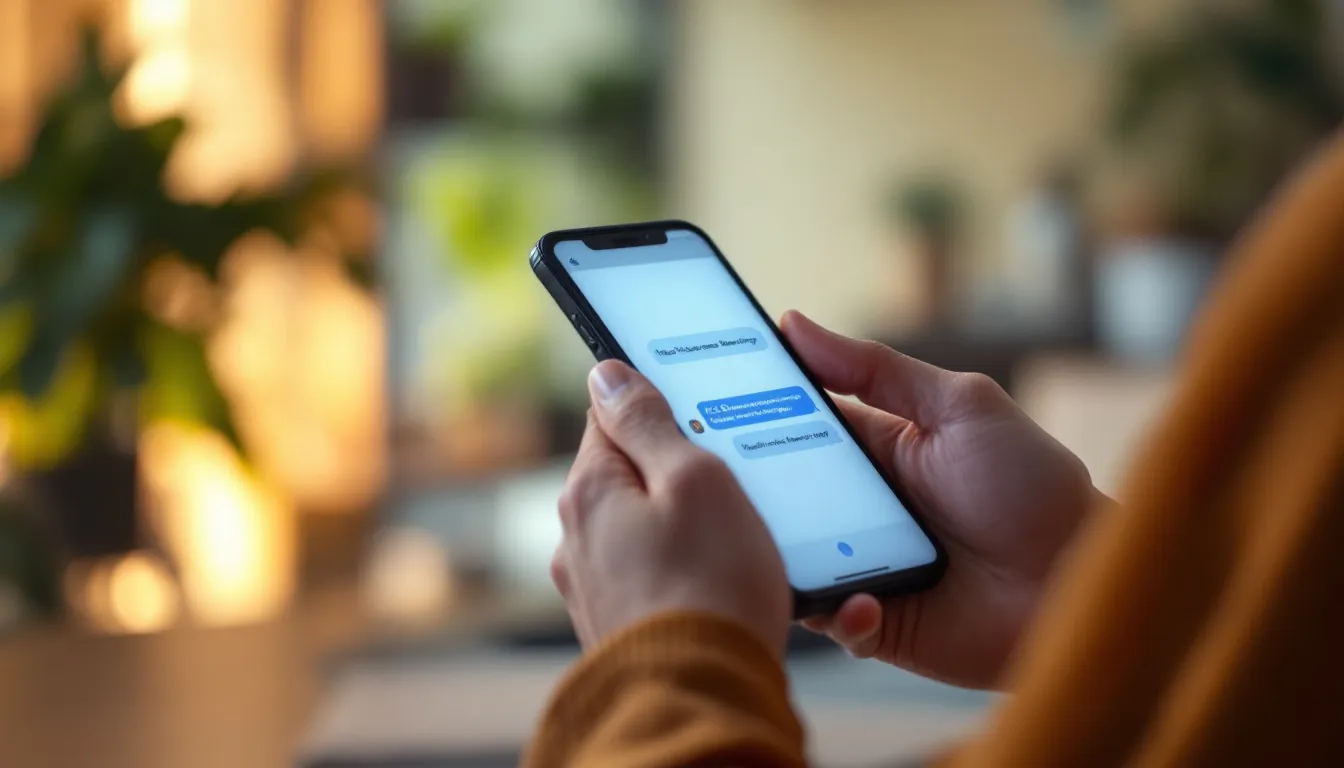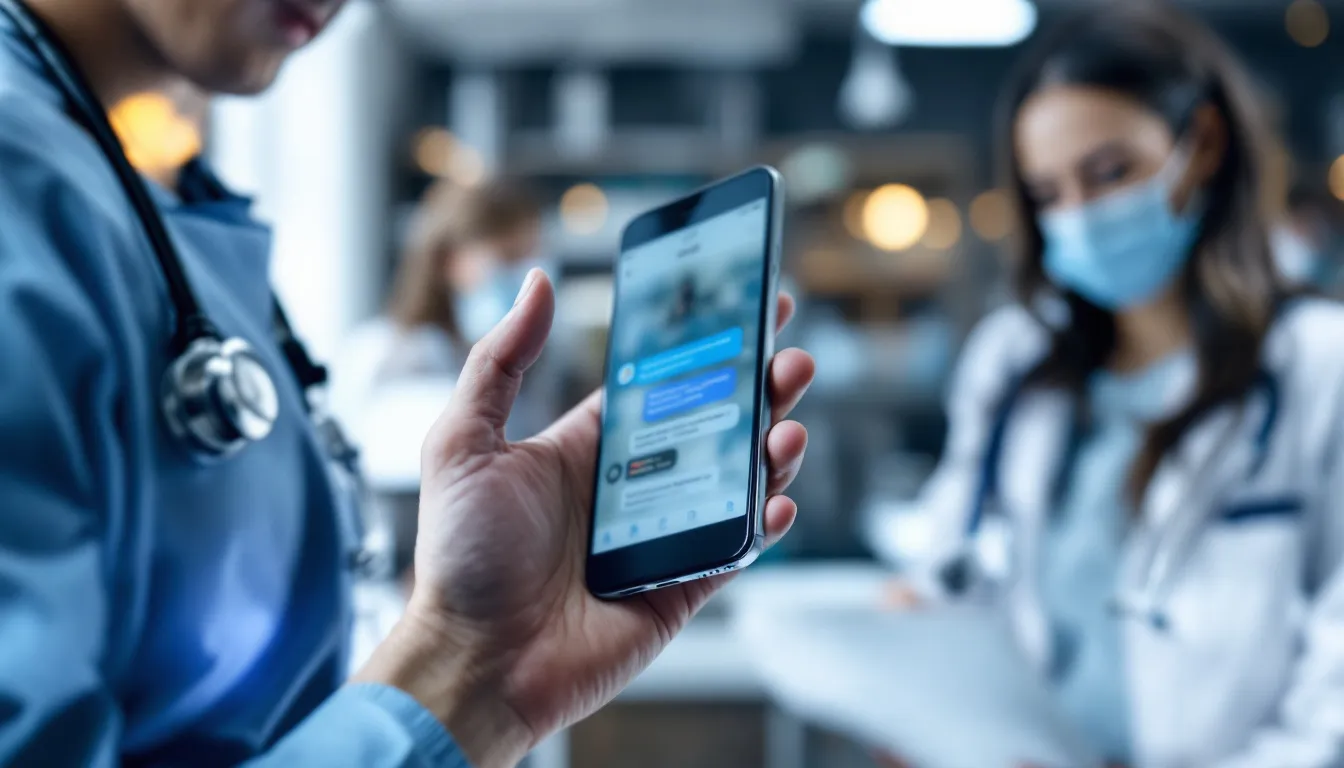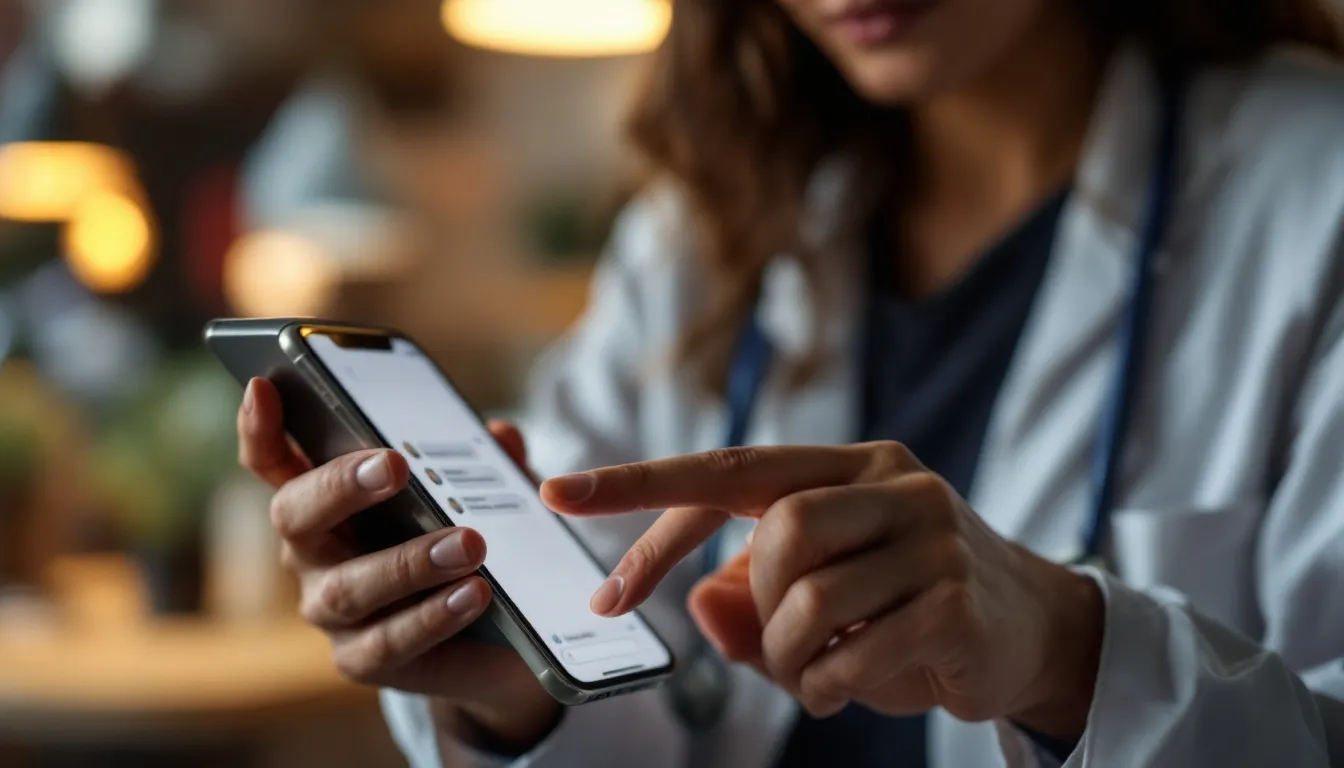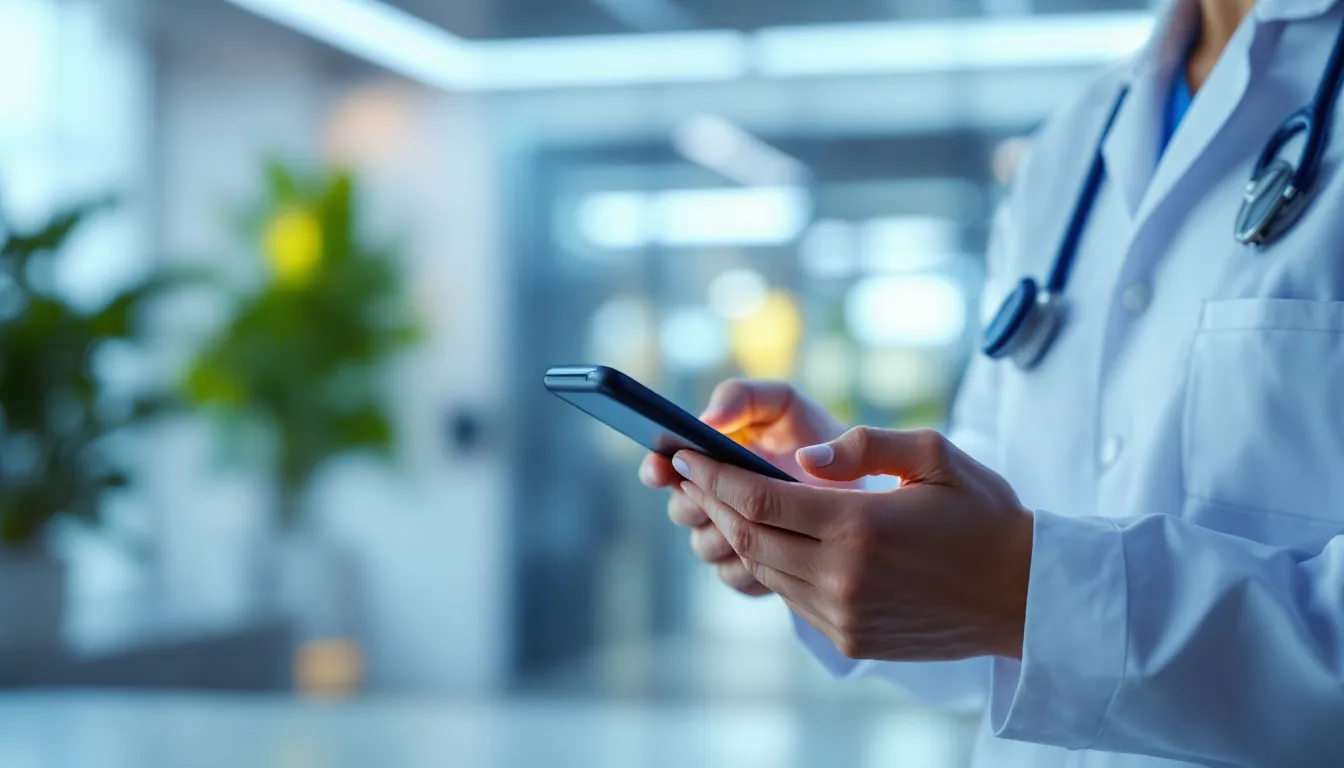RCS Business Messaging in Healthcare: Revolutionizing Health Monitoring & Follow-Ups

The healthcare sector is constantly evolving, with technology playing a critical role in enhancing patient care and operational efficiency. One of the most promising advancements in this field is RCS Business Messaging, which is set to revolutionize how healthcare providers communicate with patients. This article delves into the intricacies of RCS messaging, its significance in healthcare communication, and its potential to transform health monitoring and follow-up processes.
Understanding RCS Business Messaging
RCS (Rich Communication Services) Business Messaging is an advanced messaging protocol that enhances traditional SMS services. It allows businesses to communicate with their customers more interactively and engagingly, incorporating rich media, such as images and videos, as well as actionable buttons.
The Basics of RCS Messaging
RCS messaging offers features that far exceed those of standard SMS, including read receipts, typing indicators, and group chat functionalities. These features create a more dynamic and informative interaction experience. For healthcare providers, this means more efficient sharing of critical information with patients.
This advanced messaging solution facilitates appointment reminders, patient education, and even emergency notifications in a comprehensive format, enhancing the overall patient experience. The ability to send rich content can also bridge the communication gap between healthcare providers and patients, ensuring that vital information is conveyed clearly. Additionally, RCS can support personalized messaging, allowing healthcare providers to tailor their communications based on individual patient needs, preferences, and history, thereby fostering a more personalized approach to care.
Why RCS Messaging is Important in Business Communication
In today's fast-paced environment, businesses need to adapt to changes in communication preferences. Traditional text messaging lacks the engagement features that modern consumers expect. RCS meets these expectations by providing a superior platform for businesses to reach their customers.
For healthcare organizations, adopting RCS messaging can lead to better communication dynamics, resulting in improved patient satisfaction and adherence to treatment plans. As patients interact more with providers through engaging messages, they are likely to have a more positive perception of the healthcare system overall. Furthermore, the analytics capabilities of RCS allow healthcare providers to track engagement metrics, such as open rates and response times, enabling them to refine their communication strategies and enhance the effectiveness of their outreach efforts. This data-driven approach not only improves patient engagement but also contributes to better health outcomes by ensuring that patients receive timely and relevant information tailored to their specific situations.
The Role of RCS Messaging in Healthcare
RCS messaging is especially impactful in the healthcare sector, where effective communication is essential for the delivery of quality care. By leveraging RCS capabilities, healthcare providers can enhance direct communication with patients and streamline processes related to health monitoring.

Enhancing Patient Communication
Effective communication is foundational in healthcare. RCS messaging allows for personalized interactions with patients, enabling providers to offer tailored advice and reminders. For instance, a provider can send pre-visit instructions with multimedia content, such as instructional videos or graphics that patients can easily understand.
This capability helps ensure that patients are well-informed about their healthcare processes, leading to fewer complications and better health outcomes. The interactive nature of RCS also encourages patients to ask questions and clarify doubts, fostering a more engaged patient-provider relationship. Additionally, RCS messaging can facilitate appointment scheduling and follow-ups, reducing the burden on administrative staff and minimizing missed appointments. By sending timely reminders and confirmations, healthcare facilities can improve their operational efficiency while enhancing patient satisfaction.
Streamlining Health Monitoring
Health monitoring is a continuous process that can be significantly improved with RCS messaging. Providers can utilize this platform to send real-time updates on a patient’s health status, including medication reminders or alerts when specific health metrics need attention.
Moreover, patients can respond to these messages, providing health updates or confirming adherence to prescribed treatments. This direct line of communication can enhance patient confidence and ensure that providers have access to the most accurate and current information regarding their patients’ health. Furthermore, RCS messaging can be integrated with wearable health technology, allowing for automatic data sharing. For instance, if a patient's blood pressure readings exceed a certain threshold, an automated RCS message could be triggered to alert both the patient and their healthcare provider, facilitating prompt intervention and reducing the risk of serious health issues.
The Impact of RCS Messaging on Follow-Ups
Follow-ups are critical in healthcare, where continuity of care significantly impacts health outcomes. RCS messaging can play a pivotal role in ensuring that follow-ups are timely and effective, thereby enhancing patient engagement and reducing missed opportunities for care.

Improving Patient Engagement
Engaged patients are more likely to adhere to treatment plans and maintain regular follow-up appointments. RCS messaging allows for interactive follow-up communication, reminding patients of upcoming appointments and enabling them to confirm or reschedule easily.
Additionally, healthcare providers can send tailored messages post-appointment to summarize key takeaways from the visit, alongside instructions for aftercare. This kind of personalized follow-up not only helps in reinforcing what was discussed but also empowers patients to take an active role in managing their health. For instance, providers can include links to educational resources or videos that elaborate on treatment protocols, thereby enhancing understanding and compliance. This multi-faceted approach to communication ensures that patients feel supported and informed, ultimately fostering a stronger patient-provider relationship.
Reducing Missed Appointments
Missed appointments can waste valuable resources and hinder patient care. RCS messaging helps tackle this issue by sending reminders that are more visually engaging and interactive than standard SMS. Providers can include quick response options, allowing patients to easily confirm their attendance.
By sending reminders at strategic intervals, providers can help patients prioritize their appointments, thereby reducing the likelihood of no-shows. Additionally, the ability to engage patients in recognizing the importance of their appointments can lead to improved adherence to care plans. For example, RCS messaging can incorporate personalized health tips or motivational messages that resonate with patients’ specific health journeys, making them feel more connected to their care. Furthermore, the use of rich media, such as images or videos, can serve as a gentle nudge, reminding patients of the benefits of attending their appointments and the potential consequences of neglecting their health needs. This innovative approach not only enhances the patient experience but also contributes to better health outcomes overall.
The Future of RCS Business Messaging in Healthcare
As RCS messaging technology continues to evolve, its role in healthcare is bound to expand further. Looking ahead, the integration of AI and machine learning could create more personalized and proactive communication strategies for healthcare providers.

Potential Developments in RCS Messaging
Future developments may include predictive messaging based on patient behavior patterns, enabling proactive outreach and support. For example, if a patient frequently skips follow-up appointments, RCS can trigger automated reminders and educational materials that emphasize the importance of continued care.
Moreover, integrating RCS with telehealth services could allow for seamless virtual consultations, where patients receive messages containing links to video calls and pertinent health information, further enhancing the healthcare experience. This integration could also facilitate the sharing of real-time health data, allowing providers to monitor patient conditions more closely and make timely adjustments to treatment plans. Imagine a scenario where a diabetic patient receives a daily RCS message with their blood sugar readings, helping them stay on track with their diet and medication regimen.
Challenges and Opportunities Ahead
While RCS messaging presents numerous opportunities for improving healthcare communication, challenges remain. Ensuring patient data security and privacy is paramount, requiring robust measures to protect sensitive information shared through RCS. Compliance with regulations such as HIPAA in the United States will be critical, as healthcare providers must ensure that their messaging practices do not compromise patient confidentiality.
Furthermore, training healthcare staff to adopt and utilize RCS effectively will be necessary to maximize its potential. Without proper implementation and understanding of the technology, the benefits of RCS may not be fully realized. This training could encompass not only technical skills but also best practices for patient engagement and communication strategies that resonate with diverse patient populations. Additionally, healthcare organizations will need to invest in infrastructure that supports RCS capabilities, ensuring that all staff members can leverage the technology to its fullest.
Nevertheless, the future of RCS in healthcare looks promising. By enhancing communication, reducing missed appointments, and improving patient engagement, RCS business messaging is poised to transform health monitoring and follow-up processes, making healthcare more responsive, informative, and compassionate. As healthcare continues to embrace digital transformation, RCS could serve as a vital link between patients and providers, fostering a more collaborative approach to health management and encouraging patients to take an active role in their care journey.
Take the Next Step in Healthcare Communication with nativeMsg
Ready to elevate your healthcare communication strategies with RCS Business Messaging? nativeMsg, the RCS Business Messaging Creator, empowers you to transform texting into interactive experiences that can significantly enhance patient engagement and streamline health management. Get started on creating, sending, and optimizing your RCS Business Messaging campaigns today. Experience the future of healthcare communication and Get Started with nativeMsg's innovative platform.
